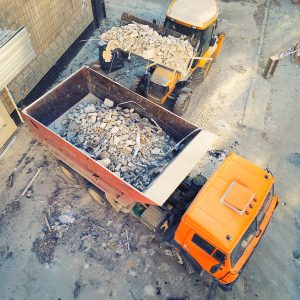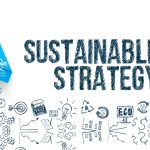Breaking Down (and Patching Up) Common Construction Waste Problems
– July 29, 2021 –
The construction industry has long been regarded as one of the significant contributors to adverse impacts on the environment. This is due to the high amount of waste generated from construction, demolition, renovation, and any other activities associated with construction. However, nowadays, in this red-hot real estate market, the industry is rapidly growing because of the increase in standard living, the demand for infrastructure projects, the changes in our consumption habits, and a natural increase in population.
According to a recent study done by the U.S. Environmental Protection Agency, American companies generate about 600 million tons of construction and demolition debris. This is more than double the amount of municipal waste from households and businesses. It’s a staggering number, yet waste production is inevitable at a construction site—even a modest location can produce massive quantities.
Although there isn’t a universal solution to solving the construction waste problem, construction companies can work with expert waste consulting and management firms and adopt simple processes to help reduce the landfill pileup. Specific methodologies aim to decrease waste in the planning stages, while post-planning construction services provide waste removal and disposal solutions.
Let’s take a detailed look at a few key pressure points and how to bandage these areas with innovative practices.
 1. Careful Planning
1. Careful Planning
During the planning and designing phases of a construction project, it is essential to note what excess materials are likely to be generated. From there, focus on how the generation of those materials can be avoided or diverted from a landfill. It’s prudent to develop a construction waste management plan. This plan should minimize the amount of waste generated and material sent to the landfill while also maximizing the amount of material sent for reuse, recycling, or reprocessing.
For high-volume project construction companies, waste avoidance may be easier said than done. There are many boxes to check in completing a project on time and as efficiently as possible. It’s difficult for some businesses to incorporate sustainability in managing construction waste. However, you can select an appropriately qualified company that provides waste and recycling management plans, environmental protection, day-to-day operations, and customized services. Whether you need to maximize the amount of recycling, utilize dumpster and portable toilet rental services, or obtain precise reports for a LEED certification, a solution can be tailor-made to meet your operation’s needs.
2. Vendors
If you are passionate about your company and its sustainability goals, choosing a vendor that supports your goals and intentions is critical. You need to select a vendor that can handle the scope of your projects and won’t slow you down. This vendor must be flexible with your schedule, adequately manage your materials, and empty your containers promptly. (Pro tip: Take your time and do the necessary research to work with the vendor that will benefit your company.)
But why waste your time dealing with multiple vendors when one call could do it all? What if you could eliminate the hassle only to make a single phone call and know the issue will be corrected? The best-managed service providers can bring a holistic approach to managing your company’s waste and help businesses run more efficiently despite the growing complexities of today’s construction environments.
 3. Timing
3. Timing
Timing is everything when it comes to construction projects. From the minute a new facility is conceived by a client to the day the doors open, there’s a delicate play that unfolds over weeks and months. Building projects can take weeks, sometimes years, depending upon the scale of construction and the available materials in today’s market. Not to mention the number of calls that need to be made for permits and various other purposes, which means more wait times impacting your tight deadlines. If builders don’t keep timing in mind through the entirety of a project, it can have damaging results.
Consider a single point of contact to keep your business running smoothly and without any unnecessary interruptions. At the first sign of an issue, your partner must be on the lookout for potential trouble and be able to act quickly. Work with a company that continuously delivers insight into opportunities for process improvement and cost savings while also ensuring safety and regulatory compliance.
Analyzing and managing your waste streams should be adopted as a way forward in making the construction industry look greener. The less you throw away, the more you can reuse materials, meaning the less you spend on waste disposal at construction sites. For example, a triple-win opportunity could come from donating materials rather than throwing them away. It allows you to claim tax benefits on otherwise wasted materials while avoiding the cost and diverting them from a landfill.
Reducing waste disposal starts with a plan, and the implementation of new habits can motivate a more sustainable construction site.










